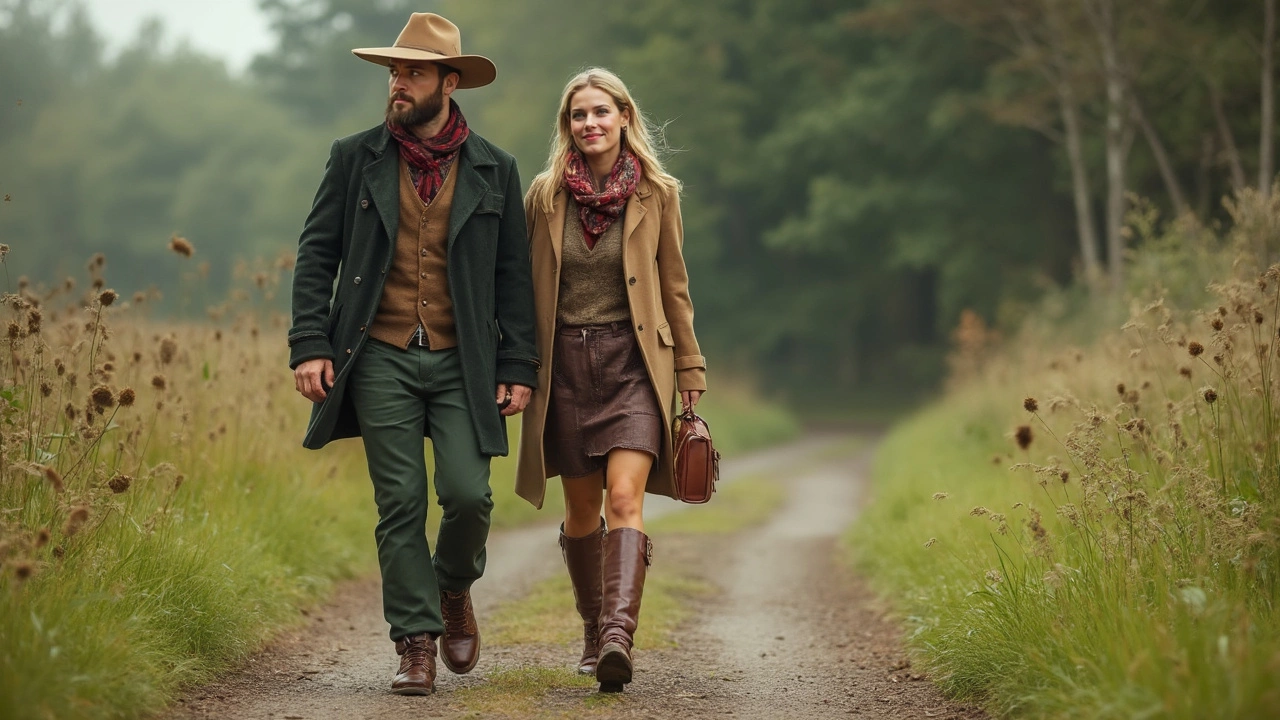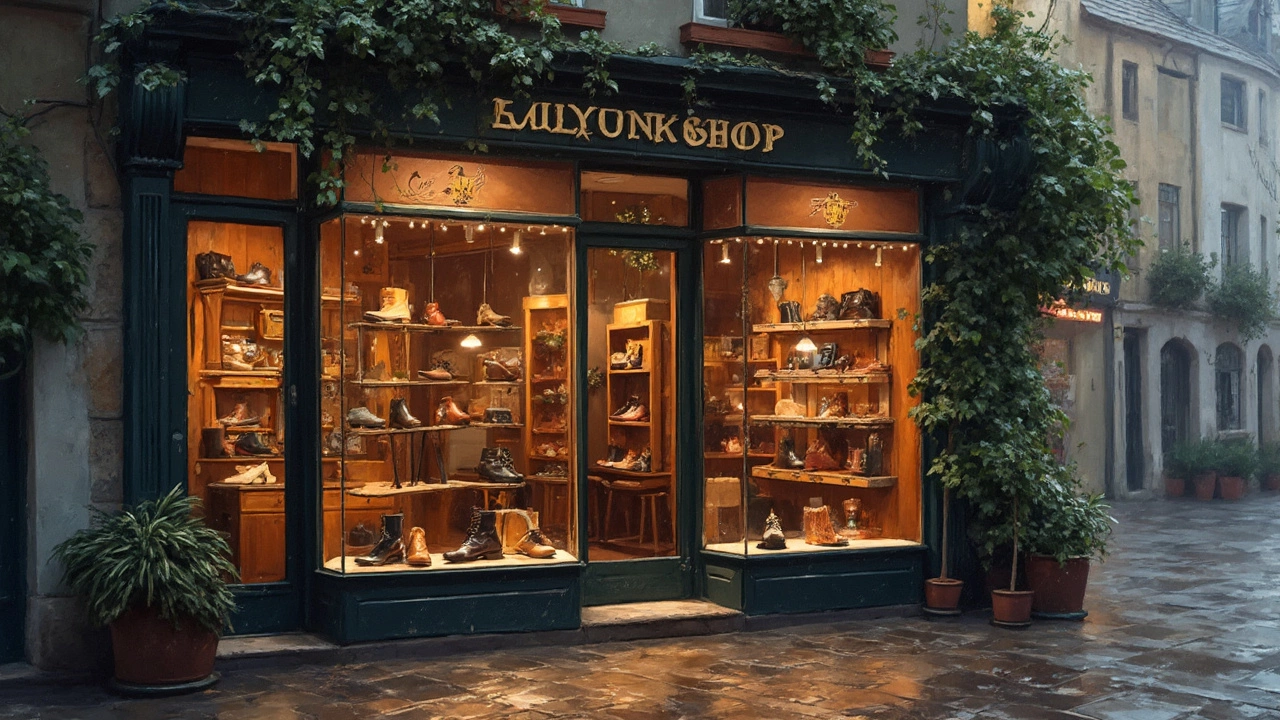When it comes to finding the right leather shoes, folks in Ireland know that comfort is king, especially with our ever-changing weather and those famous cobblestones in places like Dublin and Galway. You might wonder what makes a leather shoe worthy of a podiatrist's seal of approval? It's more than just about aesthetics; podiatrists are all about making sure your feet are supported and happy.
First off, let's talk about support and cushioning. A well-made leather shoe should have a sturdy sole and an arch that fits snugly with your foot’s natural contour. Many podiatrists suggest looking for shoes with removable insoles, so you can add your orthotics for that perfect fit. Whether you’re tramping through the lush landscapes of Connemara or just out for an afternoon in Cork, your feet need solid backing.
- Understanding Podiatrist Recommendations
- Top Leather Shoe Brands in Ireland
- Key Features for Comfort and Support
- Tips for Maintaining Leather Shoes
Understanding Podiatrist Recommendations
So what do podiatrists look for when they recommend leather shoes for wearing around Ireland? It’s not just about how stylish a shoe looks or how well it pairs with your work outfit. Podiatrists zero in on a few key factors such as foot support, proper fit, and durability.
Key Attributes
Support: For anyone who does a good amount of walking, having shoes with excellent support is crucial. Podiatrists often emphasize the need for a strong arch support that aligns with your foot’s natural shape. This not only prevents discomfort but can also help avoid long-term health issues like plantar fasciitis.
Fit: The fit is everything! Ireland’s unpredictable weather can make feet swell or shrink a bit, so the ability to adjust, maybe with a lace-up design, is helpful. Plus, podiatrists recommend ample space for toes to move, predicting the shifting temperature scenarios.
Materials: Authentic leather is preferred because it molds to fit your foot over time and offers breathability—a blessing on those warm summer days in Kerry.
Health-Focused Design
Podiatrists often advocate for shoes that incorporate technologies designed to enhance foot health. These can include cushioned midsoles to absorb shock, especially useful on rocky paths or along the cobblestone streets of downtown Dublin, and heel counters that maintain shoe stability.
Practical Tips
Checking in with your local foot health specialist could give you personalized insights. Many offer consultations that let you try out recommended brands suited to Ireland’s varied landscape. There’s a likelihood that shoes recommended will have removable insoles for customization, making room for orthotics if needed.
Here's a quick look at how these factors might be prioritized:
| Feature | Importance (%) |
|---|---|
| Support | 40 |
| Fit | 30 |
| Durability | 20 |
| Material | 10 |
Top Leather Shoe Brands in Ireland
When you're shopping for the best leather shoes, Ireland has some standout brands that get the nod from podiatrists for their blend of quality, comfort, and style. If you're shelling out your hard-earned euros, you want something that’s going to last through the drizzly walks and sunny strolls alike.
Dubarry of Ireland
Dubarry is a household name here, best known for its handcrafted shoes that are as rugged as the Irish landscape. They offer waterproof leather finishes that aren't just for boatmen—it’s ideal for anyone who contends with Ireland’s rainy days. Podiatrists love Dubarry for their attention to arch support and well-padded insoles.
Clarks
Even though Clarks isn't solely Irish, it's embraced widely across the Emerald Isle. Popular in well-trafficked shops around Dublin, Clarks offers a variety of styles that favor supportive footbeds without sacrificing style. Their shoes traditionally feature strong craftsmanship, which translates to less wear on the soles over time—perfect for city walkers and country strollers alike.
Louis Copeland
Louis Copeland isn’t just a name associated with bespoke suits. They're making waves with their leather shoes collection too. Known for timeless design and quality leather, the shoes are designed to age well, fitting into both workwear and casual settings. Podiatrists recommend them for their stable heel and broad toe boxes, ensuring a comfy fit.
Here's a quick rundown of features from these brands that podiatrists look for:
- Supportive soles that reduce strain during long walks.
- Quality leather that's breathable yet durable.
- Designs that offer sufficient room for toes to splay naturally.
While investing in leather shoes can set you back a bit more than your average pair, the confidence of knowing they won't pinch or wear down quickly is well worth it. Remember, finding the right shoe is as much about comfort as it is style, especially in the sometimes unpredictable Irish climate.

Key Features for Comfort and Support
Let's face it, nothing ruins a good day like ill-fitting shoes. Especially here in Ireland, where one minute you’re puddle-jumping through a downpour and the next, you’re strolling on a sunny path. Picking leather shoes that combine comfort and support makes all the difference.
Focus on the Fit
The first thing any podiatrist will mention is fit. It can't be too tight or too loose, and it should accommodate the natural shape of your foot. When trying on shoes, make sure there’s enough room to wiggle your toes. A properly fitted shoe should leave around a centimeter’s gap between your longest toe and shoe tip.
Arch and Heel Support
A supportive arch is crucial, especially for those who spend a lot of time on their feet – think teachers, nurses, or anyone exploring the Irish countryside. Look for shoes with built-in arch support or ones that allow for insoles if you need extra help. A padded heel can also absorb impact, something particularly useful on Ireland’s various terrains.
- Look for a supportive heel – not too high, ideally no more than 4 cm.
- Consider shoes with a cushioned insole to improve comfort over hours of wear.
Materials and Construction
Quality leather not only looks great but can also adjust to the shape of your foot over time, offering continued comfort. Choose leather that's waterproof or add a protective spray to keep shoes looking fresh despite the rain. Sturdy stitching and durable soles ensure your shoes last through the hustle and bustle of Irish life.
Breathability
Surprisingly, breathability is often overlooked. Shoes that allow airflow prevent sweaty, uncomfortable feet, which is essential for both comfort and long-term foot health. Many leather shoes are well-ventilated by design, but it’s worth checking.
Tips for Maintaining Leather Shoes
If you've invested in quality leather shoes, keeping them in tip-top shape is the next step. Let's face it, Ireland's wet and often unpredictable weather can be harsh on leather. Regular maintenance goes a long way in ensuring your shoes don't just look good but also last long.
Cleaning and Conditioning
Start by giving your leather shoes a good clean. Dirt and grime can lead to cracks if not regularly removed. Use a soft brush or a slightly damp cloth to wipe them clean. Conditioning is crucial—leather tends to dry out, especially during those cold, windy Irish days. Choose a high-quality leather conditioner and apply it every few weeks to keep the leather supple.
Weatherproofing
In Ireland, rain is a constant companion. Weatherproofing your leather shoes can save you a lot of heartache. A water-repellent spray is your best friend here; apply it every month or so, especially if you're someone who braves the elements often. Remember not to drench your shoes in the spray; a light, even coat will do.
Storage
How you store your shoes can make a huge difference. Avoid piling them in a damp corner. Instead, use shoe trees—they help maintain the shape and absorb any moisture. If you don't have shoe trees, stuffing your shoes with newspaper can work in a pinch, especially after a soggy walk in rural areas like County Kerry.
Regular Polishing
Polishing doesn't just add shine; it also creates a protective layer over the leather. Choose a good polish that matches the color of your shoes. A couple of minutes of polishing once a month is usually sufficient.
- Tip: Always test new products on a small, inconspicuous area of your shoe to avoid potential discoloration.
- Tip: Avoid drying your shoes with direct heat sources like radiators; instead, let them air dry naturally.
Quick Fixes for Common Issues
Scuff marks are par for the course. For minor marks, a dab of petroleum jelly or white vinegar can often work wonders. Just apply with a soft cloth and rub gently. And if your shoes develop an unwanted odor, sprinkle a bit of baking soda inside overnight.
Leather Facts Table
| Issue | Solution |
|---|---|
| Cracking | Use more conditioner |
| Stiffness | Condition and break them in gradually |
| Fading color | Use a pigmented leather cream |
Remember, taking a little time to look after your leather shoes not only keeps them looking great but also ensures they remain comfortable for your adventures, whether you're exploring the Cliffs of Moher or just strolling around town.
